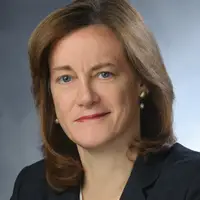Webinar: How to Improve Addiction Treatment by Systematically Tracking Patient Outcomes
Date
Clinical trials have demonstrated that opioid treatment reduces death rates by 30 to 50 percent, yet one third of patients treated at specialty addiction programs drop out of treatment within two weeks of initiation. Treatment providers can significantly improve patient engagement and treatment quality by tracking patient outcomes. In this webinar, we will describe three evidence-based approaches to using patient outcome data to improve treatment effectiveness.
Dr. Tami Mark will summarize the evidence on the effectiveness of measurement-based care, provider feedback/profiling, and patient use of mobile applications to manage symptoms. Three presenters will then describe examples of how they are using these tools in practice and present data on how the tools have improved outcomes in their programs.
As a result of this presentation, the participant should be able to:
- Provide an understanding of the effectiveness of patient outcome data as a tool to improve patient engagement and the quality of treatment
- Explain three approaches for making outcome data useful for improving engagement and outcomes: (1) provider profiling, (2) patient tracking of emotions and symptoms through mobile applications, and (3) measure-based care instruments administered during clinical encounters.
- Identify the key elements that make outcome information useful as clinical and practice improvement tools
About the Speakers
Tami L. Mark, PhD, MBA is a Senior Director of Behavioral Health Financing and Quality Measurement at RTI International. Dr. Mark collaborates with Federal and state agencies and providers to improve their behavioral health treatment systems through data analytics, quality measurement, and policy development. Dr. Mark was a contributing author to healthcare systems chapter of The Surgeon General’s Report on Alcohol, Drugs, and Health. She has authored more than 100 scholarly peer-reviewed journal articles and numerous government reports. She serves on the behavioral health advisory committee of the National Quality Forum. Dr. Mark received a PhD in Health Economics from Johns Hopkins University, her MBA from Loyola College, and her BA from Amherst College.
Karin Haberlin, MA is a Behavioral Health Program Manager in the Evaluation, Quality Management and Improvement Division at the Connecticut Department of Mental Health and Addiction Services (CT DMHAS). She is a graduate of the University of Chicago Master of Arts in the Social Sciences Program and is a doctoral student in health communication at the University of Connecticut. She oversees evaluation activities, including the annual consumer satisfaction survey, at CT DMHAS. Haberlin serves as an appointed member of the Connecticut State Innovation Model Quality Council and is actively involved in the development of a common provider scorecard for use by all payers in Connecticut.
Scott Luetgenau, MSW, LCAS is the Medication-Assisted Treatment Director of SouthLight Healthcare in Raleigh, North Carolina. He is a graduate of the University of North Carolina at Chapel Hill’s Master of Social Work Program. Luetgenau currently sits on the board of Addiction Professionals of North Carolina while also serving as their Vice President of the South Central Region. Additionally, he serves as the Vice Chairperson of the North Carolina Association for the Treatment of Opioid Dependence.
Katherine Fitzgerald, DO is a Board Certified Osteopathic Family Physician specializing in obstetrics, addiction medicine, and osteopathic manipulation. She graduated from Oklahoma State College of Osteopathic Medicine in 2009 and University of Massachusetts Residency in Family Medicine in 2012. She holds certification in Addiction Medicine from the American Osteopathic Association of Addiction Medicine. She holds clinical faculty positions at the University of Massachusetts Medical School, Regis College, and Massachusetts College of Pharmacy and Health Sciences, which she uses to train medical students, resident doctors, nurse practitioner students, and physician assistants in training. She is also the medical director of the Dana Day Treatment Center in Petersham, Massachusetts, a dual diagnosis IOP program.
